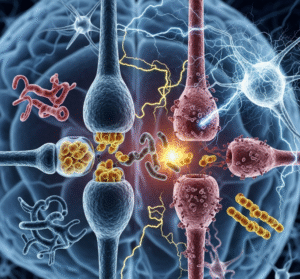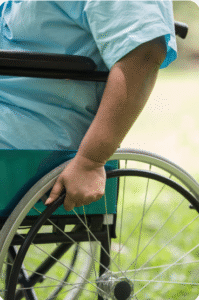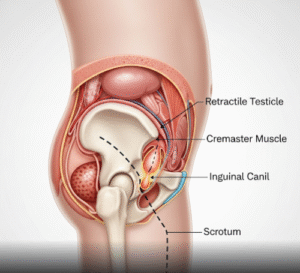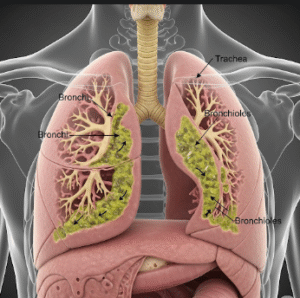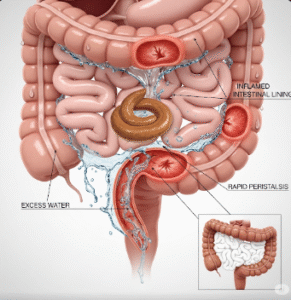Overview
Hyporeflexia is a medical condition characterized by diminished or absent reflex responses during neurological examination. Reflexes are involuntary muscle contractions in response to stimuli, and hyporeflexia often indicates peripheral nerve dysfunction or lower motor neuron problems.
Hyporeflexia can occur in various age groups and may be localized or generalized, depending on the underlying cause. In South Korea, neurology and rehabilitation centers provide advanced diagnostic evaluations and treatment plans to manage hyporeflexia and its underlying conditions effectively.
Key Facts
🟢 ➤ Hyporeflexia is characterized by reduced or absent reflexes, such as knee-jerk or ankle-jerk responses.
🟢 ➤ Often linked to peripheral neuropathy, lower motor neuron lesions, or certain metabolic disorders.
🟢 ➤ Symptoms may range from mild sluggish reflexes to complete absence of reflexes, sometimes associated with muscle weakness.
🟢 ➤ Early diagnosis helps prevent further nerve damage and supports effective rehabilitation.
🟢 ➤ Diagnostic evaluation includes neurological examination, nerve conduction studies, and imaging.
🟢 ➤ South Korean hospitals offer integrated care with neurology, physiotherapy, and occupational therapy support.
What is Hyporeflexia?
Hyporeflexia occurs when the reflex arc is impaired, leading to slower or absent involuntary muscle responses.
Key points:
➤ Commonly tested reflexes include patellar (knee-jerk), Achilles (ankle-jerk), biceps, and triceps reflexes.
➤ Indicates lower motor neuron or peripheral nerve pathology, affecting the spinal cord, peripheral nerves, or muscles.
➤ Can occur symmetrically or asymmetrically, depending on the location and nature of the lesion.
➤ Often associated with muscle weakness, atrophy, or decreased tone.
Symptoms Related to Hyporeflexia
Symptoms can vary depending on severity and underlying cause:
🟢 ➤ Sluggish or absent reflexes during neurological examination.
🟢 ➤ Muscle weakness or reduced tone (hypotonia).
🟢 ➤ Impaired coordination or difficulty with fine motor tasks.
🟢 ➤ Muscle atrophy in chronic or severe cases.
🟢 ➤ Numbness, tingling, or sensory loss if associated with peripheral neuropathy.
🟢 ➤ Gait abnormalities or balance issues in generalized hyporeflexia.
Causes / Possible Causes
Hyporeflexia occurs due to damage or dysfunction in the lower motor neurons, peripheral nerves, or muscles:
Neurological Causes
➤ Peripheral neuropathy – diabetes, B12 deficiency, or autoimmune neuropathies.
➤ Radiculopathy – nerve root compression from herniated discs or spinal stenosis.
➤ Lower motor neuron disorders – poliomyelitis, spinal muscular atrophy, or Guillain-Barré syndrome.
Metabolic and Systemic Causes
➤ Electrolyte imbalances (low potassium, calcium, or magnesium).
➤ Hypothyroidism or other endocrine disorders affecting nerve function.
Medication-Induced Causes
➤ Certain chemotherapy agents, antibiotics, or neurotoxic drugs may reduce reflexes.
Other Causes
➤ Trauma or injury to peripheral nerves or spinal cord segments.
➤ Congenital conditions affecting nerve development or function.
When Should I See a Doctor?
Seek medical evaluation if:
🟢 ➤ Reflexes are unusually sluggish or absent during daily activity or routine check-ups.
🟢 ➤ Muscle weakness, numbness, or tingling accompanies diminished reflexes.
🟢 ➤ Symptoms appear suddenly, progressively worsen, or affect daily functioning.
🟢 ➤ There is a history of neurological disorders, metabolic conditions, or medication use that could affect nerves.
Early evaluation allows timely diagnosis of underlying disorders, initiation of treatment, and prevention of permanent nerve damage.
Care and Treatment
Management of hyporeflexia involves addressing the underlying cause, restoring nerve function, and improving mobility:
Medical Management
➤ Treat underlying neuropathy or radiculopathy with medications, such as vitamin B12 supplementation, immunotherapy, or pain management agents.
➤ Adjust or discontinue medications that may contribute to nerve dysfunction.
➤ Manage metabolic or endocrine disorders (e.g., hypothyroidism, electrolyte imbalances).
Physical Therapy and Rehabilitation
➤ Strengthening exercises to improve muscle tone and reflex responsiveness.
➤ Stretching and range-of-motion exercises to prevent joint stiffness and muscle contractures.
➤ Occupational therapy for adaptation to daily tasks and improved fine motor skills.
Lifestyle and Home Strategies
➤ Maintain regular physical activity to support nerve and muscle health.
➤ Balanced diet rich in vitamins and minerals essential for nerve function.
➤ Avoid prolonged inactivity, which may worsen muscle atrophy and reflex reduction.
Advanced Care in Korea
➤ South Korean neurology and rehabilitation centers provide comprehensive evaluation, including nerve conduction studies, imaging, and electrophysiological testing.
➤ Multidisciplinary care includes neurologists, physiotherapists, and occupational therapists for tailored rehabilitation plans.
➤ Patient education supports long-term monitoring, symptom management, and improved quality of life.
Highlights (Clean Green Arrow Version)
🟢 ➤ Hyporeflexia is characterized by reduced or absent reflexes, often indicating lower motor neuron or peripheral nerve involvement.
🟢 ➤ Symptoms: sluggish or absent reflexes, muscle weakness, hypotonia, atrophy, and impaired coordination.
🟢 ➤ Causes: peripheral neuropathy, radiculopathy, lower motor neuron disorders, metabolic imbalances, medications, or trauma.
🟢 ➤ Early evaluation is crucial to diagnose underlying disorders and prevent permanent nerve damage.
🟢 ➤ Treatment includes managing underlying causes, physical therapy, occupational therapy, and lifestyle interventions.
🟢 ➤ South Korea offers advanced neurology and rehabilitation services with multidisciplinary care and patient education.



